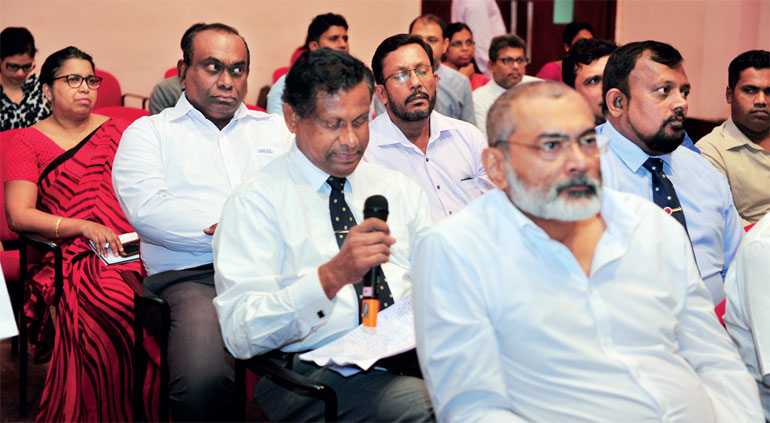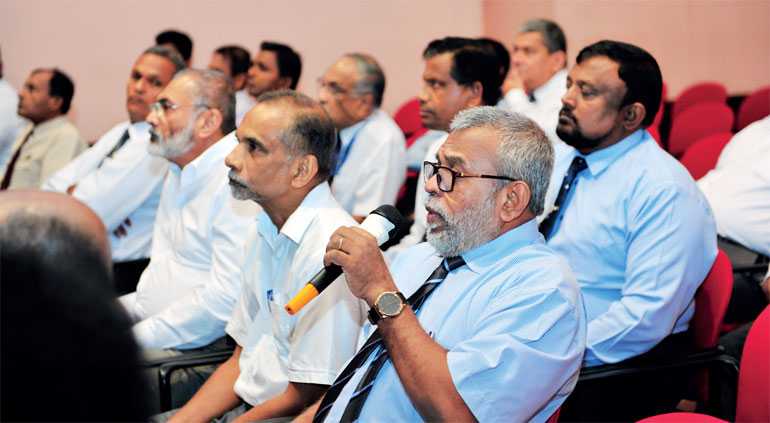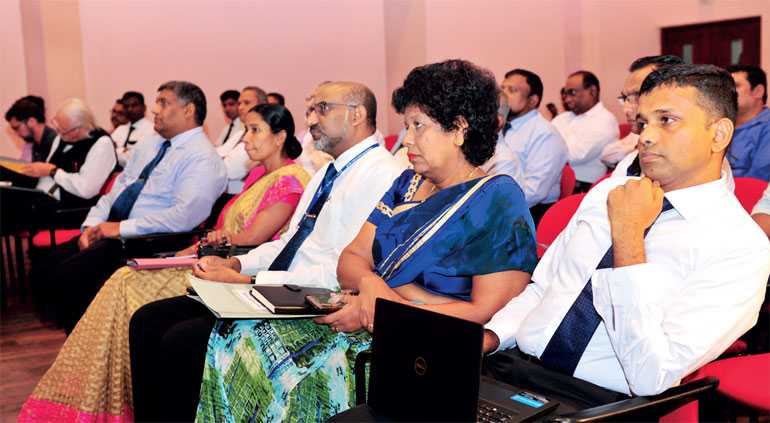Saturday Feb 21, 2026
Saturday Feb 21, 2026
Monday, 1 July 2019 00:00 - - {{hitsCtrl.values.hits}}



Sri Lanka is making a renewed attempt to leverage its geographic advantage in the East-West shipping route, this time as a boat builder and marine tourism destination under the National Export Strategy. The five-year plan formally launched in July 2018 identifies boat building and its related services as one of five key industries to expand Sri Lanka’s export basket and increase export earnings to $ 28 billion by 2022.
 |
EDB Chairperson/Chief Executive Indira Malwatte |
 |
Lloyd’s Register Asia Consultant Wijendra Peiris |
Boat and ship building is a leading industry and an emerging export sector offering a wide variety of products and services to international markets. This industry is a multibillion rupee industry and Sri Lanka should take full use of this emerging trend before losing the competitive advantage to other countries.
Sri Lanka has the capacity to build and operate boats for yacht chartering and nautical activities. Further, foreign yachts can come to Sri Lankan water and anchor and spend few days in the country as we have attractive on shore activities such as whale/dolphin watching, scuba diving, leisure fishing, snorkelling, windsurfing, kite surfing and many more around the country throughout the year.
In order to capitalise on the capabilities of the sector, it is important to create an enabling environment for the sector.
One of the main prerequisites for the development of the sector is to have a proper regulatory framework for the entire value chain and infrastructure facilities such as berthing (anchorages/marinas), launching and testing (slipways/launching pads) and dock facilities for repairing purposes.
Further, there is no proper mechanism to monitor the leisure craft operations in the country and to register visiting yachts to the country. Lack of these facilities are main hurdles for development of this sector.
Having identified the importance of development of this future visionary sector for the economic development of the country, the Government allocated funds in the Budget 2018 to develop infrastructure facilities and a regulatory framework for the sector.
EDB and Ministry of Development Strategies and International Trade has initiated to development of infrastructure facilities and identified suitable lands in Kapparathota (Weligama) to facilitate existing manufacturers to expand their production process and for berthing, launching and testing (slipways/launching pads). The feasibility of constructing a breakwater in Kapparathota (Weligama) is being studied at present.
Keeping in line with the Budget proposal 2018, EDB, the Ministry of Development Strategies and International Trade, Ministry of Ports and Shipping, Merchant Shipping Secretariat and industry commenced work on the development of the Regulatory Framework for the boat building industry by obtaining the services of M/S Lloyds Register Marine covering entire value chain of the industry.
The consultant had a series of meetings with relevant government and private sector industry stakeholders to obtain their views on the development of the regulatory framework before drafting the regulatory framework. Also keeping in line with the comprehensive Terms of Reference (TOR), all relevant regulations, legislations in force were examined carefully.
The first draft of the regulatory framework complied by the consultant and a workshop was held on 21 June at the EDB with the participation of relevant government and private sector stakeholders including Ministry of Ports and Shipping, Ministry of Industry and Commerce, Merchant Shipping Secretariat, Ministry of Fisheries, boat manufacturers, boat operators etc. to further improve and finalise the draft by obtaining inputs from relevant stakeholders.
The day long workshop included a presentation of the draft regulatory framework to cover registration, regulation and technical guidelines for all boat categories manufactured in Sri Lanka (other than fishing boat category), leisure craft operations in the country and for visiting yachts/crafts to Sri Lanka and imports of boats to Sri Lanka.
Draft regulatory framework will be revisited and updated with the inputs of the relevant stakeholders before finalising. Once the regulatory framework is in place it will ensure the smooth operation of the boat building and boating industry, fulfilling an important prerequisites for development of the industry.